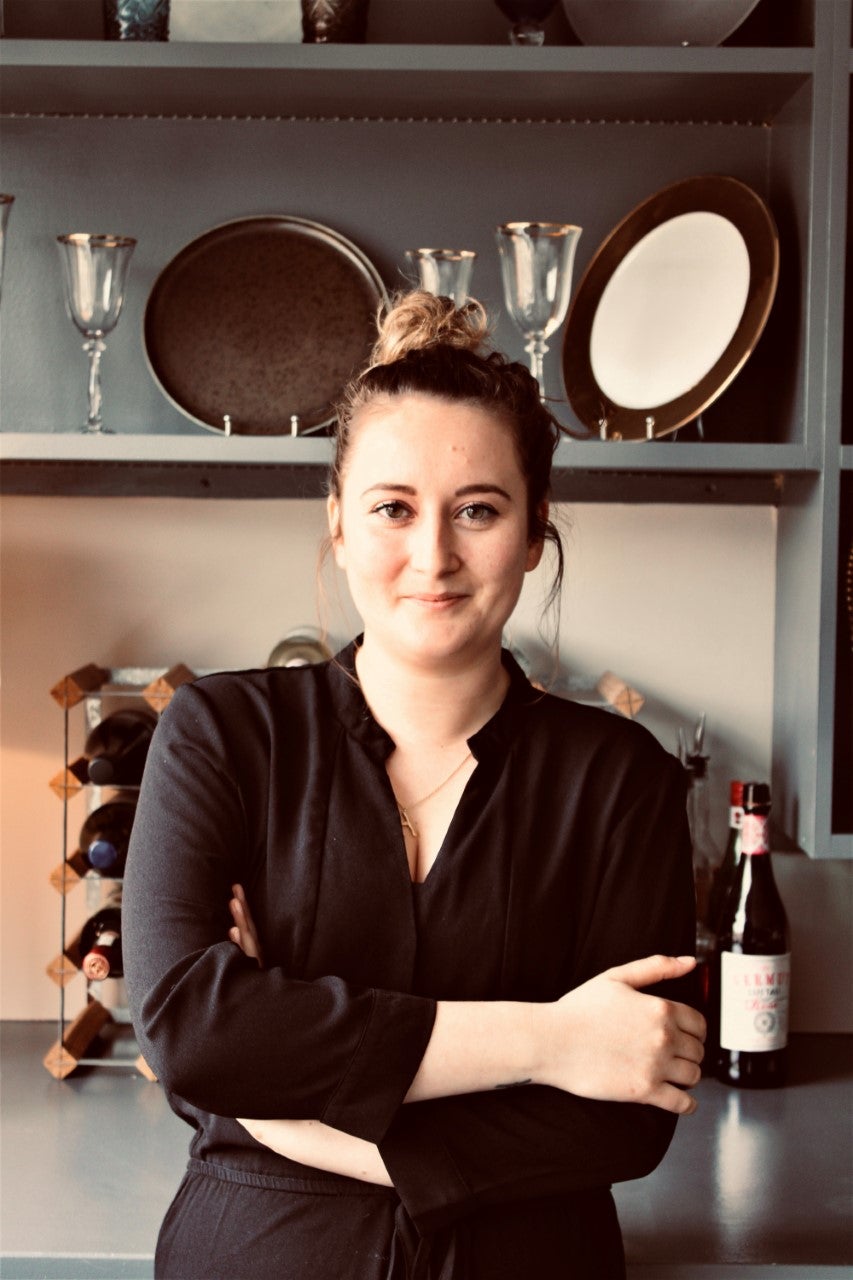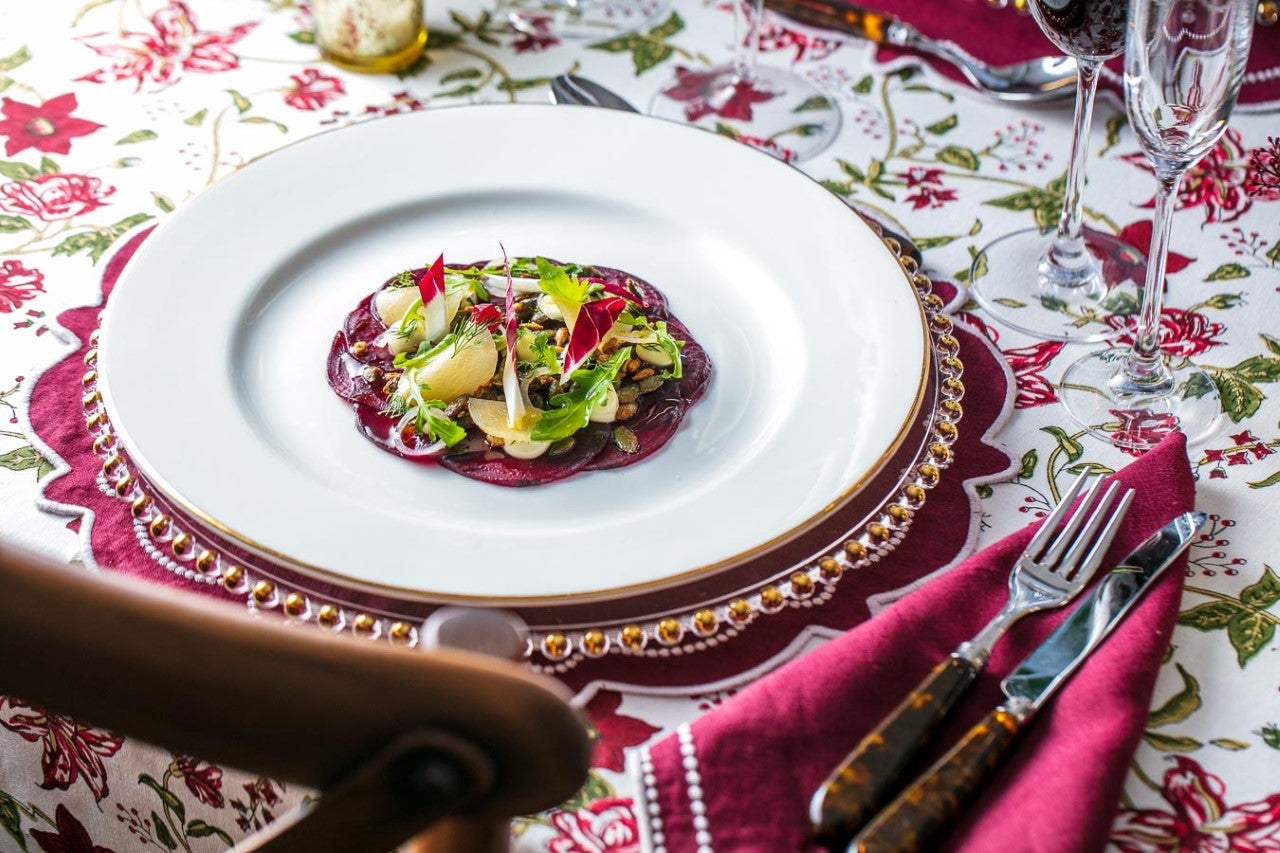Is a zero-waste wedding possible? Meet the company making it their mission to do so
Lettice Events wants to make food waste at events a thing of the past with the help of some imagination, forward planning and an Orca. Kate Ng finds out how its owner and head chef are tackling the problem


Your support helps us to tell the story
From reproductive rights to climate change to Big Tech, The Independent is on the ground when the story is developing. Whether it's investigating the financials of Elon Musk's pro-Trump PAC or producing our latest documentary, 'The A Word', which shines a light on the American women fighting for reproductive rights, we know how important it is to parse out the facts from the messaging.
At such a critical moment in US history, we need reporters on the ground. Your donation allows us to keep sending journalists to speak to both sides of the story.
The Independent is trusted by Americans across the entire political spectrum. And unlike many other quality news outlets, we choose not to lock Americans out of our reporting and analysis with paywalls. We believe quality journalism should be available to everyone, paid for by those who can afford it.
Your support makes all the difference.There is an Orca in the industrial kitchen of Lettice Events’ headquarters in Kennington. No, not the whale — this Orca is a boxy stainless steel beast that can “digest” up to 360 lb (163kg) of food waste every day, reducing it all into a dark brown liquid that can be used as fertiliser or to create renewable energy. The Orca was introduced to the event company’s industrial kitchen this year as part of a renewed effort to tackle food waste.
When it comes to food waste, catered events are a particularly guilty party — research from the Lime Venue Portfolio shows that the average event wastes between 15 and 20 per cent of the food it produces. A 2017 study from Sainsbury’s suggested that a tenth of all wedding food gets wasted, which is equivalent to an average of £488 worth of binned food per event. Much of this waste comprises unfinished meals, edible wedding favours, and remnants of wedding cake.
Holly Congdon, whose family runs Lettice Events recoils in horror when she remembers watching bin after bin of wasted food being thrown out after business events and wedding banquets. “It really is appalling to think about,” she tells The Independent. “You can’t even give the food to the event staff to take home because it’s already been cooked and would have to be reheated [again]. So it all goes into the bin.”
She says that a large part of the food waste culture in the events industry is keeping it hidden from clients. Throwing excess food into the bin at the end of a big event has always been an unspoken agreement between suppliers and clients. “Part of it is that the client has paid for us not to talk about the waste, just get rid of it and hide it. No one wants to see it. It’s not great.”
So how do we tackle the massive problem of food waste in the events industry? For Lettice, finding an answer to this question meant stripping their practices down to the basics and essentially starting again.

Lettice has a history of using seasonal, local produce wherever possible in its catering menus, but committing themselves to a more sustainable means of working meant prioritising the use of such produce. It meant looking at each ingredient and figuring out how to make the most of it, what to do with the byproducts, and doing it at scale.
Congdon says: “I took over Lettice from my parents (who now run The Biscuiteers) and quite quickly realised that there was an opportunity to do something different. The pandemic gave us a good opportunity to strip it all back, work out what a zero-waste events company would look like, and what our ethos would be.”
When the coronavirus pandemic hit in March 2020, Congdon and her head chef, Mark Malden, decided to make eliminating as much food and plastic waste as possible as their top priority for when events could resume — whenever that would be (many moons later, as it turned out). But they didn’t realise how monumental of a challenge this would be.
You lift the rock up and realise just how much you’re doing wrong
“It forced us to look into aspects of the business we had never even considered before,” she says. From small things such as tinfoil, which needs to be reused at least seven times before its environmental impact is less detrimental than plastic, to carbon scoring each menu item, Lettice pulled apart its inner workings and found that they needed to start almost from scratch if they were to run a sustainable business.
“You lift the rock up and realise just how much you’re doing wrong,” Malden, who was a private chef before he joined Lettice, adds. “We carried out an analysis to see what the carbon footprint of each of our top menu items were, and the results were shocking. Who knew burrata would be the biggest culprit? We thought it would be the dishes that contained beef, but we were really surprised — then when you understand the huge impact that the dairy industry has on the environment, you start to realise that maybe that burrata isn’t so delicious anymore.”

Burrata, and other dairy products, has a huge carbon footprint because cheese-making is very resource-intensive. A 2006 report by the United Nations Food and Agiculture Organisation found that livestock generates 18 per cent of greenhouse gases, with one pound of cheese producing around 10.8 pounds of carbon dioxide, second only to beef, which produces 20 pounds of carbon dioxide per pound of meat.
As part of its initiative to create less waste in the kitchen, Lettice works closely with clients to design their menus with them. “For every event, we create a ‘wasteful canape’,” Malden says. “It’s a canape that uses up whatever byproduct is left from preparing and cooking all the other items on the menu. This way, we can work to close the loop and our waste output becomes minimal.
“We collaborate with our client to create the canape, and do our best to create circular dishes, using every part of the ingredient. For example, we might use celeriac in the main and then dry out the skins and make them into a salt. Or we make prawn tacos, take the prawn husks and burn them to create a smoky powder. It’s a chance to experiment.”
Another way Lettice has changed its practices is evident in how it takes guest numbers for any given event. Where most organisers want to confirm final guest numbers as soon as possible, Congdon and Malden’s approach is to confirm them as close to the date as they can.

“We take our final guest numbers as close to the wire as possible to make sure we’re not making extra portions that will go to waste,” she says. “Our menus are created around seasonal, local produce, and we work closely with clients to ensure that we cater for the right number of guests. It is hard to balance because you don’t want to be caught short but you don’t want to put anything in the bin either.”
Getting people to just think about not having meat is pretty hard
But while the company has redesigned its menus — making them monthly in order to utilise whatever is in season at the time, and using them as building blocks to create bespoke menus for their clients — and tries to push vegetarian and plant-based menus, it can be hard to change Britons’ minds when it comes to the status that meat holds.
“I think people still do have quite outdated views about what should be a main course for a big event,” Congdon explains. “We do a lot of big corporate dinners and people still ask us about the beef main course. But if you talk to any guest, they don’t really want another beef dish, so we try to tell our clients, why not do something different? There is still a massive stigma attached to vegetarian and plant-based dishes. Getting people to just think about not having meat is pretty hard.”

Malden adds: “There’s definitely an association between meat and status. People also just don’t believe that a vegetarian menu could be that filling. You really have to show them that it can be a really filling plate of food that has a lot of variety, and no meat at all.”
Yet, many Britons have become much more eco-conscious, and demand for sustainable weddings have risen. According to the Sustainable Wedding Alliance, 78 per cent of couples who took part in the group’s wedding sustainability survey said overall sustainability was a factor that was important or very important to them.

As for businesses, while the vast majority (97 per cent) said sustainability was important or very important to them, only seven per cent of companies surveyed currently measure their carbon emissions, with a further 27 per cent starting to do so. Nearly half (48 per cent) do not measure their carbon emissions at all.
But while Lettice might be in the minority of event companies that are actively pushing for more sustainability, their presence in the space is hugely important. The government is already seeking ways to reduce food waste among companies as part of its Food Strategy, so pivoting to greener business practices is both a sensible and responsible approach for every company.
Congdon admits that mistakes have been, and will be made as they continue on their zero waste journey. “We’re not perfect, and we’re learning all the time,” she says. “But anything that’s worth doing is hard, right? So we’ll keep forging ahead.” With every circular dish they reimagine and every scrap they feed to their Orca, Congdon and Malden’s vision of zero waste is coming to life.
Food waste is a huge global problem, with millions of tonnes of food being thrown away every year, accounting for eight to 10 per cent of greenhouse gas emissions worldwide. The Independent’s series, The Clean Plate Club, explores what can be done about food waste as the world continues to face up to the climate crisis.
Join our commenting forum
Join thought-provoking conversations, follow other Independent readers and see their replies
Comments